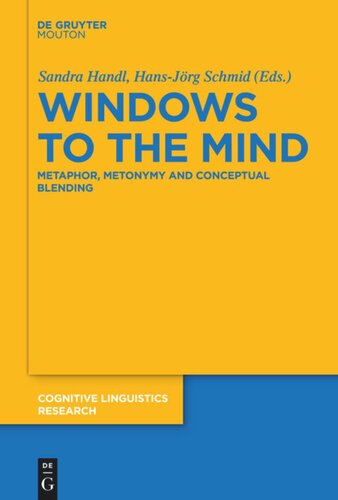

Most ebook files are in PDF format, so you can easily read them using various software such as Foxit Reader or directly on the Google Chrome browser.
Some ebook files are released by publishers in other formats such as .awz, .mobi, .epub, .fb2, etc. You may need to install specific software to read these formats on mobile/PC, such as Calibre.
Please read the tutorial at this link: https://ebookbell.com/faq
We offer FREE conversion to the popular formats you request; however, this may take some time. Therefore, right after payment, please email us, and we will try to provide the service as quickly as possible.
For some exceptional file formats or broken links (if any), please refrain from opening any disputes. Instead, email us first, and we will try to assist within a maximum of 6 hours.
EbookBell Team

4.8
34 reviewsCognitive linguists are convinced that the nature of linguistic structures is strongly influenced by the way we experience and perceive the world and by how we conceptualize and construe these experiences and perceptions in our minds. At the same time, the study of linguistic structure and usage is credited with the potential to open windows to how our minds work. The present volume collects papers investigating linguistic phenomena that reflect the key cognitive processes of metaphor, metonymy and conceptual blending, which have proven to be highly influential in linguistic conceptualization.
Theoretical and methodological issues, such as metaphor identification and the relevance of the target domain for children's understanding of metaphor, are focused on in the first section. The second and third parts are devoted to the application of the theoretical frameworks of the conceptual theory of metaphor and metonymy and the theory of conceptual blending to linguistic data. The contributions critically explore the explanatory potential of these theories, build bridges between them, link them with other approaches and notions (such as construction grammar, common ground and stance/evaluation), and uncover conceptual regularities and cognitive models that underlie and shape our language use in specific domains. The linguistic structures under consideration span the range from compounds and premodified noun phrases to constructions and texts such as jokes and political speeches. Methods applied include psycholinguistic experiments, analyses of data culled from authentic language corpora and discourse-analytical approaches.